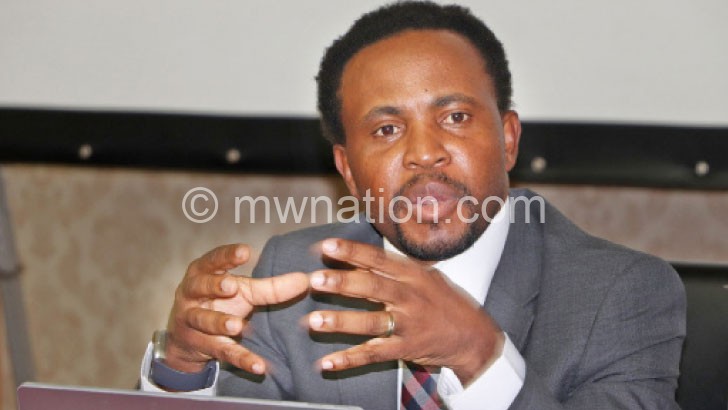81% DON’T FEAR COVID-19—SURVEY
Preliminary findings of a survey to gauge public perception on the novel coronavirus (Covid-19) pandemic show that 81.78 percent of Malawians are more scared of going hungry than the virus.
The survey—jointly conducted by the Programme on Governance and Local Development (GLD) and the Institute for Public Opinion and Research (Ipor)—found that about 60 percent of Malawians fear that the healthcare system will be more difficult to access due to Covid-19 while about 76 percent believe others will have a negative perception of them if they test positive for Covid-19.

Reads the survey report in part: “The majority of Malawians are not very worried about becoming infected with Covid-19. The percentage varies across districts, with the highest amount of concern in Chitipa and Karonga, on the Tanzania border, but most are not very worried.”
The survey, with a sample size of 4 078 respondents, was conducted between May 7 and 28 2020 with financial support from the Swedish Research Council.
In a telephone interview from Zomba yesterday, Ipor research director Boniface Dulani described the collaborative research as ongoing, saying their main interest is to contribute to research that will enable policymakers and decision-makers to better focus on the fight against the pandemic.
He said: “Research has to be relevant and topical. At the moment, the global focus is on Covid-19 and of course in our case we are also interested in elections. But for the time being, our interest has been on Covid-19.
“Therefore, the primary motive of this research is to generate data that can inform policy by government and other stakeholders towards Covid-19.”
Weighing in, health economist Gowokani Chijere-Chirwa yesterday agreed with the findings of the survey, stressing that currently, people are calculating the risk of dying from Covid-19 compared to hunger.
He said: “They [Malawians] are aware that the chance of dying from Covid-19 is low, because with or without medicine, they will still survive. But when there is no food, then that will bring many problems
first, even before death. That is called simple choice under uncertainty livelihood.”
But in his reaction to the findings, Presidential Task Force on Covid-19 co-chairperson John Phuka, who is also Dean of Public Health at the College of Medicine—a constituent college of the University of Malawi, yesterday said he was at pains to understand the source of perceptions by Malawians towards Covid-19 as revealed by the survey.
He said amid such revelations from the survey, the clear message from government remains that the State recognises the dangers of Covid-19 and the impact the disease can have on both individuals and the economy at large.
Said Phuka: “I would say let us continue to call upon the drive of the severity of the disease, how we are all susceptible, and how it can spread.
“Nkhani ndiyakuti anthu akhale ndi nthumazi and aliyense adziteteze [The bottomline is that people should appreciate the dangers the disease poses and that each of us should take the responsibility to protect themselves].
“We should continue with hygiene, hand-washing, not touching the face and also observe social distance. These are really key.”
Findings of the survey also show that 17.72 percent of Malawians do not fear they will go hungry while a small fraction of 0.50 percent of Malawians do not know or refused to respond.
The survey also found that while the highest percentage of those worried about becoming infected is in the Northern Region, Malawians aged 55 years and above are least likely to be very worried about becoming infected, even though they face the greatest risk from infection.
The findings of the survey come at a time Malawi has recorded 279 Covid-19 positive cases, including four deaths, since the first three cases were reported on April 2 this year.
It also comes when there seems to be a ‘business as usual’ mode nationwide in the handling of the pandemic despite health experts and other authorities preaching about measures designed to contain the spread of the disease, including social distancing that is restricting public gatherings to a maximum of 100.
However, despite the public gatherings restrictions, politicians from both the governing and opposition sides are disregarding the measure and holding campaign rallies attended by thousands mostly with no personal protective equipment such as face masks and hand sanitisers.
Last week, 441 Malawian migrant workers, who returned from South Africa escaped from a Covid-19 screening camp in Blantyre, exposing a security lapse in the way Covid-19 suspects are being handled and posing a risk to the public at large.





